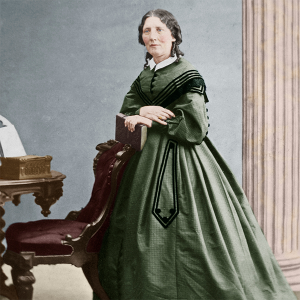
‘John Brown: A Biography of American abolitionist’ by W.E.B. Du Bois. A fascinating telling of the antebellum abolitionist whose belief -"Slavery is wrong"- thrust him and into a personal war to uproot an institution older than the nation he loved.
#TheUnitLibrary #Bookclub 🧵
#TheUnitLibrary #Bookclub 🧵

Du Bois, the author, and civil rights activist was born in 1868 and was raised during the postbellum period where he advocated vehemently against lynching, segregation, and discrimination. 

1909, the year he first published his biography of John Brown was the NAACP was founded in NY in response to continued violence against Black Americans.
bit.ly/2T8rloV
bit.ly/2T8rloV
The world looked very different from today. The Wright Brothers took their first flight just 6 years prior and women would not complete their fight for suffrage for another decade. bit.ly/3vgIf2R
The reconstruction era following the deadliest war in U.S history was not a smooth rebuilding of the nation. Constitutional amendments aimed for social and economic revitalization but the insidious strains of white supremacy lingered. bit.ly/2SlmvEB
Those opposed to equality for all organized paramilitary and political coalitions such as the KKK, the Redeemers, and the White League seeking to gain political power and enact supremacist laws such as the "black codes" and "Jim Crow laws" bit.ly/3vfRssb
This was the world in which Bu Bois was raised, overcame adversity, was educated, and dedicated himself to better the nation.
If you are like me, Harper's Ferry was a footnote in history class when discussing civil rights. It was somewhere between "the save trade," the 3/5 compromise, Fort Sumter, the Emancipation Proclamation, and "MLK, the end.
The study of the Civil war focused on the battles themselves, not often the people who fought them.
Just as I lacked an understanding of how Germany could fall under the influence of the Third Reich, I never really got to the bottom of how the United States could succumb to secession.
It was racism all along.
It was racism all along.
"Of all inspiration which America owes to Africa, however, the greatest by far is the score of heroic [sic] men whom the sorrows of these dark children called to unselfish devotion...
"John was born, one hundred years after his great-grandfather. Nothing else very uncommon." Owen Brown, John's father - on the day John was born - May 9th, 1800.
What is the story that catapulted this ordinary person to the acclaim of Du Bois?
What is the story that catapulted this ordinary person to the acclaim of Du Bois?
During the War of 1812, he first experienced war. "The effect of what he saw during the war went so far to disgust him with military affairs that he would neither train nor drill." What could turn this youth into a general of a guerrilla army? to.pbs.org/34bgugq
John Brown is quoted as saying "Try to do whatever you do in the very best possible manner."
Du Bois tells, in compelling detail, how John Brown took this mantra and applied it in organizing to free enslaved people.
Detractors of John Brown label him a terrorist, and it is true that his actions resulted in violence. He raided Kansas, invaded Missouri, and occupied Harper's Ferry. He even authored a constitution. bit.ly/3wsucHD
However, "Brown was not fighting against democratic institutions in a free society; rather he was fighting against an unfree society that denied him basic civil liberties and, in Kansas, even the right to have a fair election." bit.ly/3oG0jkF
I wholly recommend this book. As leaders, we have a duty to learn from the bloody lessons of our past so as not to have them repeated in or after our lifetimes.
bit.ly/3fHRvX5
…the Soldier, above all other people, prays for peace, for he must suffer and bear the deepest wounds and scars of war.
General of the Army Douglas MacArthur
Thayer Award acceptance speech, 1962
…the Soldier, above all other people, prays for peace, for he must suffer and bear the deepest wounds and scars of war.
General of the Army Douglas MacArthur
Thayer Award acceptance speech, 1962
Du Bois puts it eloquently in his conclusion, "the cost of liberty is thus a decreasing cost, while the cost of repression ever tends to increase to the danger point of war and revolution. Revolution is a test of capacity; it is always a loss and a lowering of standards."
That is the lesson and one the Army is learning even today. That the cost of inclusion, the cost of confronting extremism, the cost of putting people first is the cheapest today and it is something we must be willing to pay. Our Ethic demands it.
There is a cost to change, even for the better. It takes time, work, being uncomfortable, but the price we will pay for ignoring problems is far more.
#ProjectInclusion
#ArmyProfessionDays
#SAAMP
#PeopleFirst
#ProjectInclusion
#ArmyProfessionDays
#SAAMP
#PeopleFirst
Our nation failed to see this and it held on to the understated 'peculiar institution' up to and beyond the cost of war.
‘John Brown’ is a book I will likely add to a future reading challenge. Essential reading for anyone with a desire to know how we came to be the nation we are today, and the nation we can grow to become.
Thanks for listening.
@threadreaderapp unroll
Thanks for listening.
@threadreaderapp unroll
• • •
Missing some Tweet in this thread? You can try to
force a refresh



















